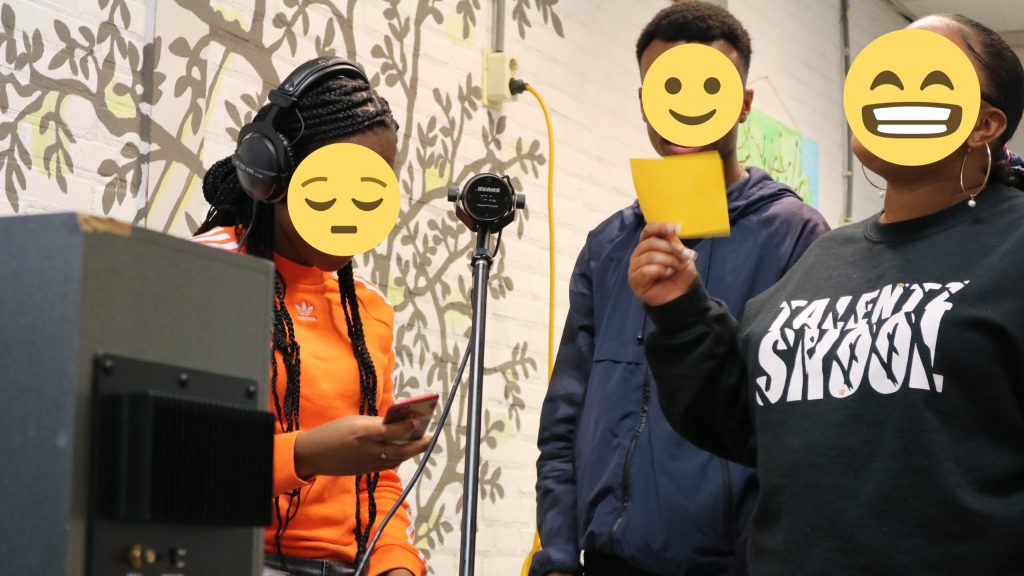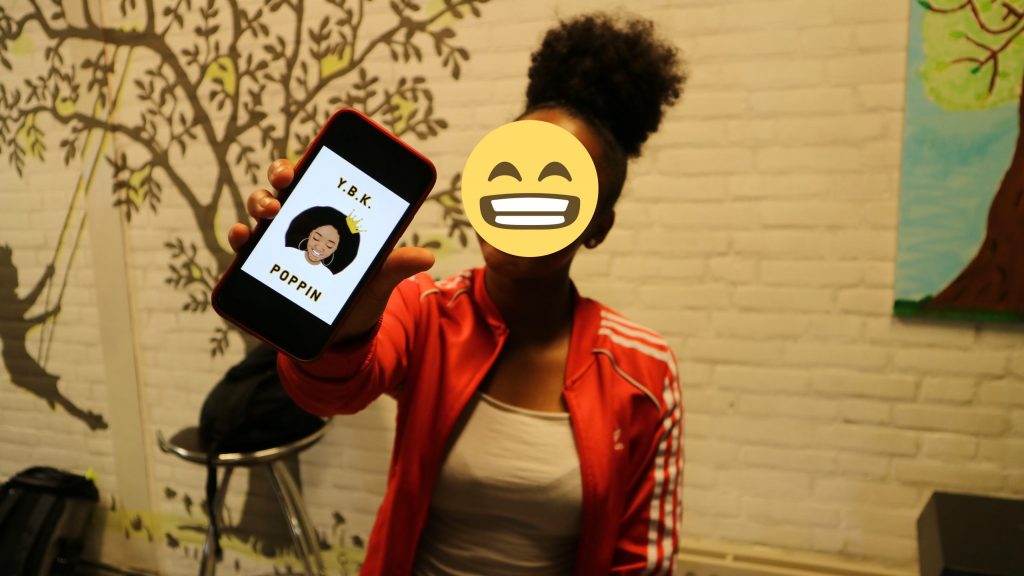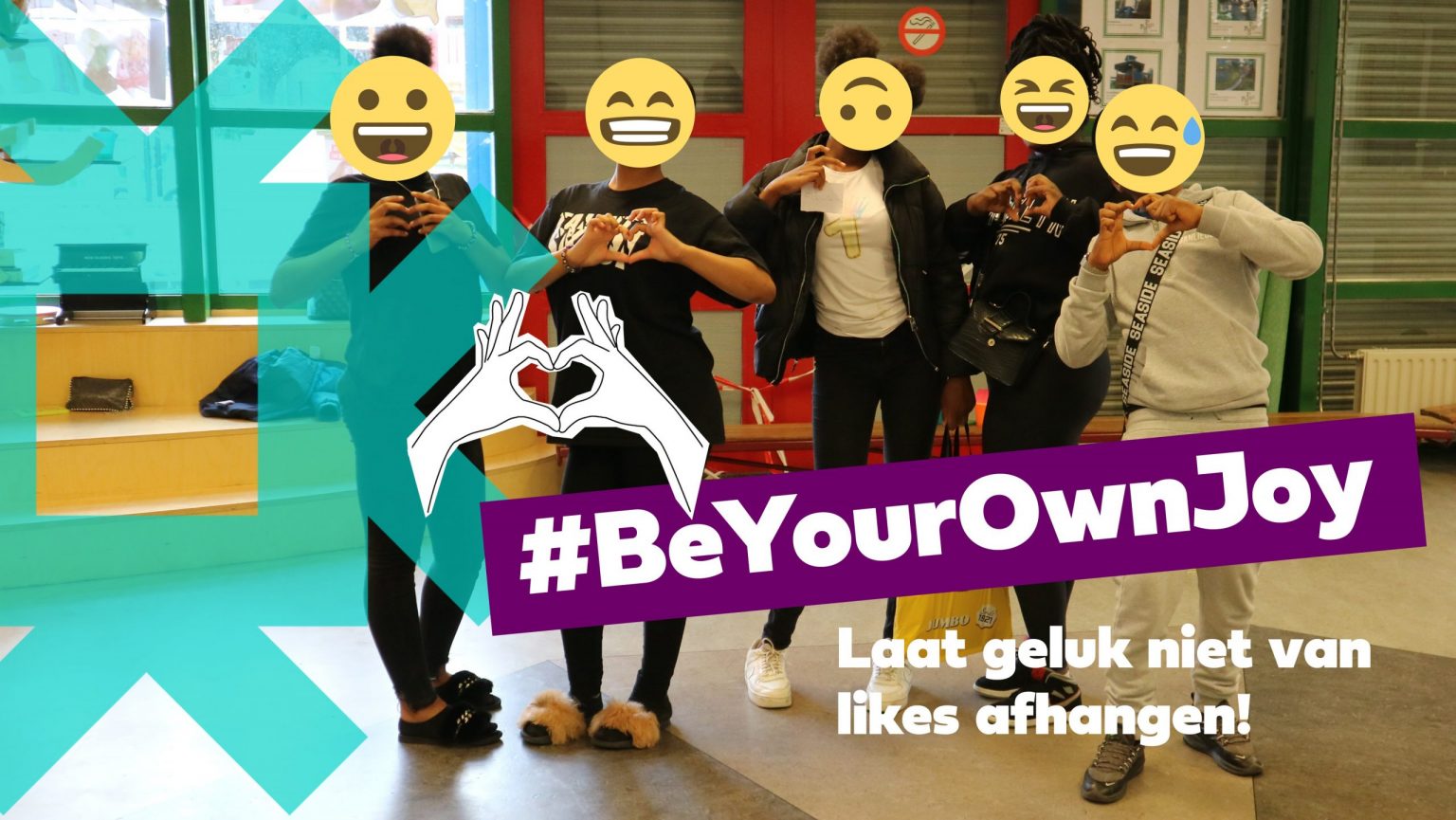Digital action research in Rotterdam-Feijenoord
— Movez Network, Erasmus University
According to scientific studies, young people in poor neighborhoods grow up in environments that promote unhealthy lifestyles. But is that also how young people from those neighborhoods see it? To find that out, New Momentum, Talentz Skool, and Chance to Influence organized the ‘INFLUENCE!’ program in collaboration with the Movez Network of the Erasmus University Rotterdam.
‘INFLUENCE!’ comprised a series of six workshops in which young people from Rotterdam-Feijenoord and IJsselmonde examined their environment and came up with social media challenges to improve it.

Friction
In recent years, there has been an increasing gap between how society thinks and talks about societal issues and the outcomes of social scientific research. As one of the initiators of ‘INFLUENCE!’, New Momentum wanted to experiment with an alternative approach. An approach that does not see young people as research subjects but empowers them as ‘agents of change.’ ‘INFLUENCE!’ approached young people’s social networks as ‘learning organizations’ and inspired them to use social media to push the boundaries of social norms and behavior. To this end, we organized a series of workshops where young people explored their experiences through music, dance, fashion, and social media. We collaborated with TalentzSkool and Chance to Influence – two organizations that offer cultural and talent development programs in Rotterdam – and the Movez Network of the Erasmus University – a research group focused on young people and the media.


Momentum
The workshops were organized next to the playground ‘Feijenoordse Middenstip’, where TalentzSkool and Chance to Influence already organized youth meetings every Tuesday evening. Together, we thought of how these activities (dance, theatre, music, circle discussions, and fashion design) could be used as a research tool.
Workshop 1 and 2:
Theater, music and circle discussions invited young people to think about the influence of their social and physical environment on their lifestyle. It showed that the young people found it difficult to cope with peer pressure on social media and were concerned about safety on the street.
Workshop 3 to 5:
The young people came up with hashtags and slogans for t-shirts, song lyrics, and social media challenges. They called for ‘happiness not to depend on likes’ (#BeYourOwnJoy) and ‘to do something meaningful with your life’ (#FollowYourDreams). During the workshops, the young people were helped with making the t-shirts, music and social media challenges.
Workshop 6:
In the last workshop, the young people looked back: what did they think of the workshops, and what did their social media posts initiate in their environment?

”I’ve seen all participants grow. At the beginning, everyone was closed. But over the weeks, we opened up and built a good bond. I hope it can stay that way to ensure that our neighborhood gets more attention.”
— Participant of INFLUENCE!


Form
INFLUENCE! led to some surprising insights. It turned out that the young people knew perfectly well what a healthy lifestyle entailed: exercising enough and eating healthy. Social media pressure and street safety were virtually blind spots for researchers, while they made a world of difference in the perception of young people.
In addition, young people enjoyed the sessions. In form and content, the program matched their perception of the world. In addition, it did not stop with talking about problems: the participants were challenged to do something about it. With INFLUENCE! the seeds have been sown for more action research with young people.
